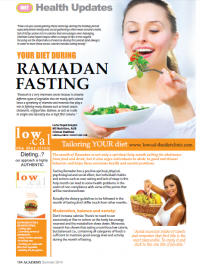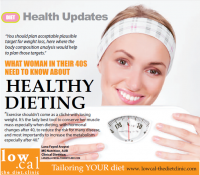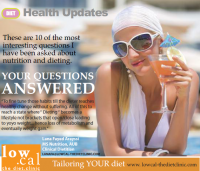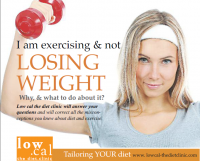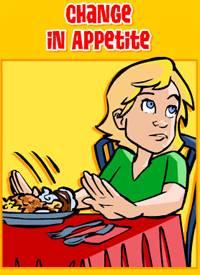Losing/gaining weight. What to do when we are on the go?
PDF :
LOSING/GAINING WEIGHT.WHAT TO DO WHEN WE
ARE ON THE GO?
You're a student or you are working your first real job, making new friends, dating, getting married, maybe even starting a family. Your life is a whirlwind, which means healthy eating is the first thing to go. Now is the time to take a close look at your body and health. Looking out for yourself at 20 is your nutrition for life.
Metabolism
To understand the process of how we gain or lose weight or even maintain it we need first to understand the concept of metabolism.Metabolism is the process by which your body converts what you eat and drink into energy. During this complex biochemical process, calories in food and beverages are combined with oxygen to release the energy your body needs
to function. Even when you're at rest, your body needs energy for all its "hidden" functions, such as breathing, circulating
blood, adjusting hormone levels, and growing and repairing cells.
The number of calories your body uses to carry out these basic functions is known as your basal metabolic rate (BMR). Several factors determine your individual basal metabolic rate: Your body size and composition.
The bodies of people who are larger or have more muscle burn up more calories, even at rest.
Your gender
Men usually have less body fat and more muscle than do women of the same age and weight, burning more calories.
Your age
As you get older, the amount of muscle tends to decrease and fat accounts for more of your weight, slowing down
calorie burning.
Energy needs for your body's basic functions stay fairly consistent and aren't easily changed. Your basal metabolic
rate accounts for about 60 to 75 percent of the calories you burn every day.
In addition to your basal metabolic rate, a major factor determines how many calories your body burns each day: physical activity.
Physical activity:
While you don't have much control over the speed of your metabolism, you can control how many calories you burn through your level of physical activity. The more active you are the more calories you burn. In fact, some people who are said to have a fast metabolism are probably just more active than are others.
You can burn more calories with:
Regular aerobic exercise such as walking, bicycling and swimming. As a general goal, include at least 30 minutes of physical activity in your daily routine. If you want to lose weight or meet specific fitness goals, you may need to increase your activity even more. If you can't set aside time for a longer workout, try 10-minute chunks of activity throughout the day. Remember, the more active you are, the greater the benefits.
Potential benefits of physical activity:
•Reduced risk of CVD
•Reduced risk of some types of cancer (especially colon and breast)
•Improved mental outlook and lessened likelihood of depression
•Improved mental functioning
•Feeling of vitality
•Feeling of belonging
•Strong self-image
•Reduced body fatness, increased lean tissue
•Greater bone density
•Sound and beneficial sleep
•A more youthful appearance, healthy skin and improved muscle tone
•Lessening or elimination of PMS
•Improved resistance to infection
Strength training exercises, such as weightlifting, are important because they help counteract muscle loss associated with aging. And since muscle tissue burns more calories than fat tissue does, muscle mass is a key factor in weight loss. Any extra movement helps burn calories. Look for ways to walk and move around a few minutes more each day than the day before. Taking the stairs more often and parking farther away at the store are simple ways to burn more calories. Even activities such as gardening, washing your car and housework burn calories and contribute to weight loss.
So our body is like a box. Energy (food) going in, energy (physical activity and thermogenesis, i.e. digesting, absorbing, transporting and storing the food we consume) going out. If energy in is higher than energy out we gain weight, and vice versa if the energy in is lower than the energy out we lose weight.
What is energy In FOOD?
Protein: In our body, protein serves as building material for growth and repair ofbody tissues; it forms integral parts of most of body structures such as skin, tendons, ligaments, membranes, organs, bones and muscles. Thanks to chronic dieting, skipped meals, it's likely you're falling short in this department. Protein helps keep you full and provides the building blocks so you can make and keep calorie-burning muscle. "Recent studies suggest that, at a minimum, we need 60 to 70 grams of protein a day. Get your quota of healthy proteins by eating skinless white-meat poultry, lean steak, fish, eggs, beans, tofu, and low-fat dairy. Or simply consult with your dietitian to tailor a nutritional program that helps you lose weight as fat but not your muscle mass.
Carbohydrate: Many think that carbohydrates are the enemy, yet it is the main fuel for the bodily activities. It is needed for energy and building the non essential amino acids. It is also helpful in the processing of fat and in the building of cartilage, bone and tissues of the nerves system.
Complex carbohydrates are the bread, cereals, pasta, rice and potato.
Simple carbohydrates are fruits and sugar. Cutting carbohydrates from the diet is a major drawback however you need to choose the right sources to optimize your health. Best would be choosing whole grain to refined grains, fruits and vegetables and pulses. The best time to cut down carbohydrates would be at night when the body doesn’t need it. Your dietitian is the person who can tell you how much carbohydrate to eat in the right amount in order not to gain weight since excess carbohydrates to your needs will turn into fat.
Fat:In our body, fat not only serves as energy reserves but also cushion to vital organs, protect the body from temperature extremes, carry fat-soluble nutrients(vitamin A, D, E, K),and provide the major component of cell membranes. Unsaturated fats (liquid at room temperature are the healthier options such as canola oil and olive oil. Whether the good fat or the bad fat, fats have the highest calorie per unit compared with carbohydrate and protein,( 1 g of fat being 9 calories and 1 g of carbohydrates and protein 4 calories) therefore if you are trying to lose or maintain your weight limit their intake.
Potassium:Your muscles and heart need it to function properly. But most women in their 20s get less than half the recommended amount, according to the USDA. Munching two cups of fruit (an apple, a banana, and a plain yogurt with fresh strawberries) and two and a half cups of veggies daily (a garden salad and a side of broccoli) provides all the potassium you need.
Calcium: Is the main mineral found in bones and teeth. It is also used for various functions in the body such as blood clotting, nerve signals, and muscle contraction. Absorption of calcium is regulated by vitamin D.
Studies have shown that when your dietary intake of calcium is increased there is also an increase in the breakdown of fat and a decrease in the production of fat.
LOSING WEIGHT healthily, happily…
So in order to lose weight, best strategy is to decrease fat to the minimum. Take the amount of proteins (the healthy ones) and carbohydrates you need and drink lots of water. Increase fiber intake to dilute your energy intake and help your bowel movement. Also most of the vitamins and minerals are present in the outer layer of the grain. Based upon that, we really advice not to follow the fad diets described in most magazines or circulated between neighbors or even the diet pills so much in fashion nowadays. The above will make you risk losing your muscle mass therefore decreasing your metabolism which explains why people would put back all the weight lost and more. The scientific way of losing the extra weight you have is by getting yourself checked by professionals. Your body composition will be determined by the latest technologies, hence setting for you target of how much fat you need to lose or muscles you need to gain for optimal health. Even you can get advices on what exercises are best to follow. After determining your metabolism, the amount of calories you need to take to lose the extra fat is determined then translated into amount of food distributed amongst the different 3 major food groups (proteins, carbohydrate and fat). Of course taking into consideration an optimal intake of major vitamins and minerals not to mention omega 3 and fibers.
GENERAL HEALTH GUIDELINES to follow:
Increase your fiber intakeby consuming whole grains, fruits and vegetables. Consumption of fiber normalizes bowel movement, aids in constipation, lowers blood cholesterol; help control blood sugar levels, and aids in weight loss.
When you go grocery shoppingread carefully the nutrition facts labels on food. Always go for low fat dairy products, whole grain products and be weary of added sugar and salt in some products. By doing so you will decrease the intake of saturated fats, Trans fats, cholesterol, added sugar and salt which will prevent you from cardiovascular diseases, diabetes, and hypertension.
Drink plenty of water(about 8 cups a day). Water is your body's principal chemical component and makes up about 60 percent of your body weight. Every system in your body depends on water. For example, water flushes toxins out of vital organs and carries nutrients to your cells. Lack of water can lead to dehydration. Even mild dehydration can drain your energy and make you tired.
Increase your intake of fish to 2 times per week at least,fish is rich in omega 3 fatty acids. Omega 3 has many healthbenefits, reduces the risk of cardiovasculardisease by increasing the levels of thegood cholesterol and lowering the levels of bad cholesterol andtriglycerides. It is also beneficial for the relieving arthritis symptoms.The best sources are sardines, mackerel, tuna and salmon.Some non fish sources are flax seeds, linseeds and walnuts.
“Your dietitian is the person who can tell you how much carbohydrate to eat in the right amount in order not to gain weight”
“In order to lose






